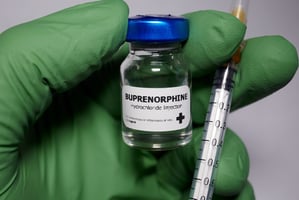Adding a single infusion of ketamine to a program of mindfulness-based relapse prevention (MBRP)...
Contingency Management Programs May Help Patients With Cocaine Use Disorder

Contingency management interventions that reward patients for abstaining from cocaine use may be an effective treatment option for patients with cocaine use disorder, a meta-analysis published today in JAMA Network Open suggests.
Brandon S. Bentzley, M.D., Ph.D., of Stanford University and colleagues analyzed data from 157 clinical trials that included 402 treatment groups and 15,842 participants aged 18 years or older with cocaine use disorder. Participants enrolled in the trials on average used cocaine about three days week and had been using cocaine for several years.
The most common treatments were psychotherapy and contingency management programs. Other interventions included treatment with anticonvulsants, antidepressants, antipsychotics, dopamine agonists, opioids, psychostimulants, or placebo. The primary outcome was a negative urine test for cocaine metabolites at the end of treatment.
Overall, 26.9% of patients completed treatment and were cocaine-free at the end of treatment.
The researchers found that only contingency management programs were associated with an increased likelihood of having a negative urine test at the end of treatment. Patients who participated in contingency management programs were roughly twice as likely to have a negative urine test compared with those in placebo groups.
The researchers noted that contingency management programs have been helpful in treating substance use disorders at the U.S. Department of Veterans Affairs.
“Given the results of our study and the fact that the Department of Veterans Affairs is the largest integrated provider of addiction services in the U.S., consideration of the implementation of contingency management programs on a national level or within other major health care systems in the U.S. is warranted,” they wrote.
Psychotherapy did not appear to have a significant impact on cocaine use. However, the researchers noted that their analysis did not take into account the type or dose (session length and frequency) of psychotherapy. They added that their approach to analyzing the data cannot rule out the benefits associated with specific approaches or doses of psychotherapy.
For related information, see the American Journal of Psychiatry article “Searching for Treatments for Cocaine Use Disorder: The Quest Continues.”
(Image: iStock/AndreyPopov)
Interested in Loan Repayment Program? NHSC Welcomes Applicants
The deadline to submit applications for the National Health Service Corps (NHSC) Loan Repayment Program has been extended until Thursday, May 27 at 7:30 p.m. ET. Learn more about your eligibility and the application process here.
Don't miss out! To learn about newly posted articles in Psychiatric News, please sign up here.






